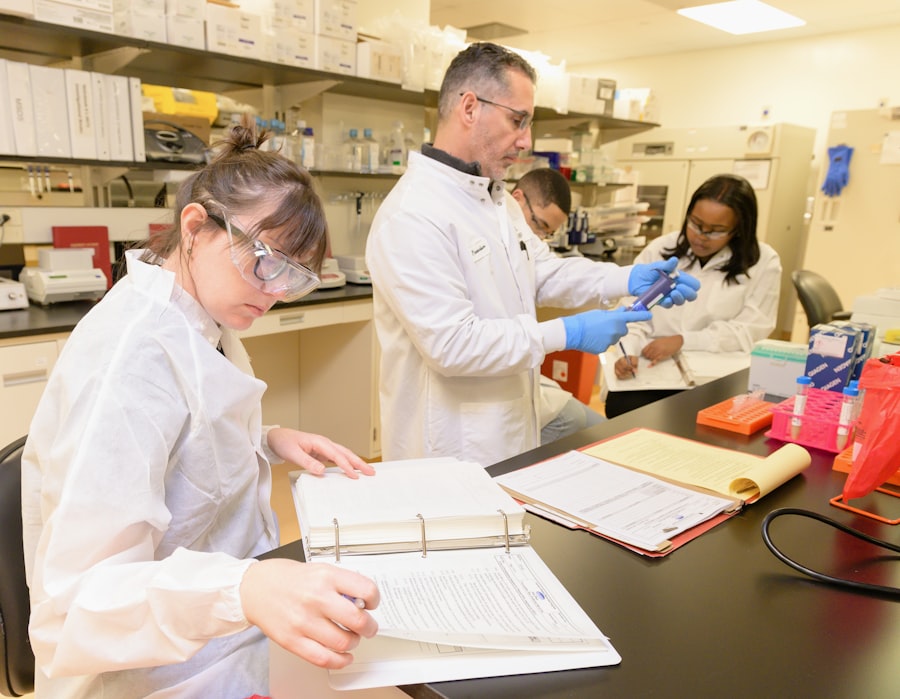Clinical research studies are systematic investigations designed to evaluate the safety and efficacy of new medical interventions, including drugs, devices, and treatment protocols. These studies are essential for advancing medical knowledge and improving patient care. They typically involve human participants and can take various forms, such as clinical trials, observational studies, and epidemiological research.
The primary goal of clinical research is to gather data that can lead to better health outcomes, inform clinical practices, and ultimately enhance the quality of life for patients. The process of clinical research is governed by strict ethical guidelines and regulatory frameworks to ensure the safety and rights of participants. Before a study can commence, it must undergo rigorous review by institutional review boards (IRBs) or ethics committees, which assess the study’s design, potential risks, and benefits.
Participants are often required to provide informed consent, which means they must be fully aware of the study’s purpose, procedures, potential risks, and their rights before agreeing to take part. This transparency is crucial in fostering trust between researchers and participants, as well as ensuring that individuals are making informed decisions about their involvement in research.
Key Takeaways
- Clinical research studies help advance medical knowledge and treatment options.
- Participating in studies can provide access to new therapies and expert care.
- Finding local studies involves using online databases and consulting healthcare providers.
- Eligibility criteria vary and must be carefully reviewed before enrolling.
- Asking questions about risks, benefits, and study procedures is crucial before participation.
Benefits of Participating in Clinical Research Studies
Participating in clinical research studies can offer numerous benefits to individuals, particularly those with specific health conditions or those seeking new treatment options. One of the most significant advantages is access to cutting-edge therapies that may not yet be available to the general public. For patients with chronic or life-threatening illnesses, participating in a clinical trial can provide an opportunity to receive innovative treatments that could potentially improve their health outcomes when conventional therapies have failed.
Moreover, participants in clinical research studies often receive comprehensive medical care throughout the duration of the trial. This care typically includes regular monitoring by healthcare professionals, access to specialized tests, and close attention to their health status. Such oversight can lead to early detection of complications or changes in health that might otherwise go unnoticed.
Additionally, many studies offer participants compensation for their time and travel expenses, making participation not only a potentially life-saving decision but also a financially viable one.
How to Find Clinical Research Studies Near Me

Finding clinical research studies in your area can be a straightforward process if you know where to look. One of the most effective ways to locate studies is through online databases and registries that compile information about ongoing clinical trials. Websites such as ClinicalTrials.gov provide a comprehensive listing of studies across various medical fields and geographical locations.
By entering specific search criteria, such as your condition or location, you can easily identify relevant studies that may be recruiting participants. In addition to online resources, local hospitals and academic medical centers often conduct clinical research studies. Many of these institutions have dedicated research departments that can provide information about current trials.
It may be beneficial to speak with your healthcare provider about potential studies; they may have insights into ongoing research that aligns with your health needs. Furthermore, patient advocacy groups related to specific diseases often maintain lists of clinical trials and can assist individuals in finding appropriate studies.
Criteria for Participating in Clinical Research Studies
| Criteria | Description | Example Metrics |
|---|---|---|
| Age | Participant’s age range suitable for the study | 18-65 years |
| Gender | Specific gender requirements if applicable | Male or Female or Both |
| Health Status | General health condition or presence of specific diseases | Healthy, diagnosed with diabetes, no chronic illness |
| Medication Use | Restrictions on current medications or treatments | No use of immunosuppressants, stable medication regimen |
| Previous Participation | History of participation in similar clinical trials | No participation in last 6 months |
| Consent | Ability and willingness to provide informed consent | Signed informed consent form |
| Pregnancy Status | Pregnancy or breastfeeding status for female participants | Not pregnant or breastfeeding |
| Lifestyle Factors | Habits such as smoking, alcohol use, or exercise | Non-smoker, moderate alcohol use |
Eligibility criteria for participating in clinical research studies vary widely depending on the study’s objectives and design. Common factors that researchers consider include age, gender, medical history, current health status, and specific diagnoses. For instance, a study investigating a new treatment for diabetes may require participants to have a confirmed diagnosis of type 2 diabetes and may exclude individuals with other metabolic disorders or significant comorbidities.
In addition to medical criteria, some studies may have logistical requirements that participants must meet. These can include geographical proximity to the study site, availability for follow-up visits, or willingness to adhere to specific protocols during the trial. It is essential for potential participants to carefully review these criteria before enrolling in a study, as meeting eligibility requirements is crucial for both the integrity of the research and the safety of the participants.
What to Expect When Participating in a Clinical Research Study
When you decide to participate in a clinical research study, it is important to understand what the experience will entail. Initially, you will undergo a screening process where researchers will assess your eligibility based on the study’s criteria. This may involve physical examinations, laboratory tests, and detailed discussions about your medical history.
If you qualify for the study, you will be provided with comprehensive information about what participation involves. Once enrolled, participants can expect regular visits to the study site for assessments and monitoring. Depending on the nature of the study, these visits may occur weekly, monthly, or at other intervals specified by the researchers.
During these visits, you may receive the investigational treatment or intervention being studied, along with standard care if applicable. Researchers will closely monitor your health throughout the trial, collecting data on your response to the treatment and any side effects you may experience. It is also common for participants to complete questionnaires or diaries documenting their symptoms and overall well-being.
The Importance of Clinical Research Studies

Clinical research studies play a pivotal role in advancing medical science and improving healthcare practices. They are essential for developing new treatments and therapies that can address unmet medical needs. Without clinical research, many of the medications and interventions currently available would not exist.
For example, groundbreaking treatments for conditions such as cancer, HIV/AIDS, and autoimmune diseases have emerged from rigorous clinical trials that tested their safety and efficacy. Furthermore, clinical research contributes to evidence-based medicine by providing data that informs clinical guidelines and best practices. This evidence helps healthcare providers make informed decisions about patient care based on the latest scientific findings.
Additionally, clinical studies often highlight disparities in health outcomes among different populations, prompting further investigation into social determinants of health and leading to more equitable healthcare solutions.
Questions to Ask Before Participating in a Clinical Research Study
Before committing to participate in a clinical research study, it is crucial to ask pertinent questions that will help you make an informed decision. Start by inquiring about the study’s purpose: What is being tested? What are the potential benefits and risks associated with participation?
Understanding the rationale behind the study can provide insight into its significance and relevance to your health condition. Additionally, ask about the specifics of what participation entails. How long will the study last?
What types of assessments will you undergo? Will you receive any compensation for your time? It is also important to clarify what happens if you experience adverse effects or if you wish to withdraw from the study at any point.
Knowing your rights as a participant and understanding the support available throughout the trial can alleviate concerns and enhance your comfort level with participation.
Resources for Finding Clinical Research Studies Near Me
Several resources are available for individuals seeking information about clinical research studies in their vicinity. As previously mentioned, ClinicalTrials.gov is one of the most comprehensive databases for locating ongoing trials across various medical conditions and locations. This platform allows users to filter searches based on specific criteria such as location, condition, phase of trial, and more.
In addition to national databases, local hospitals and universities often have dedicated websites or contact information for their research departments. Many institutions publish newsletters or bulletins highlighting current studies seeking participants. Furthermore, organizations focused on specific diseases or conditions frequently maintain lists of relevant clinical trials and can provide guidance on how to get involved.
Engaging with these resources can empower individuals to take an active role in their healthcare journey while contributing to vital medical research efforts.




